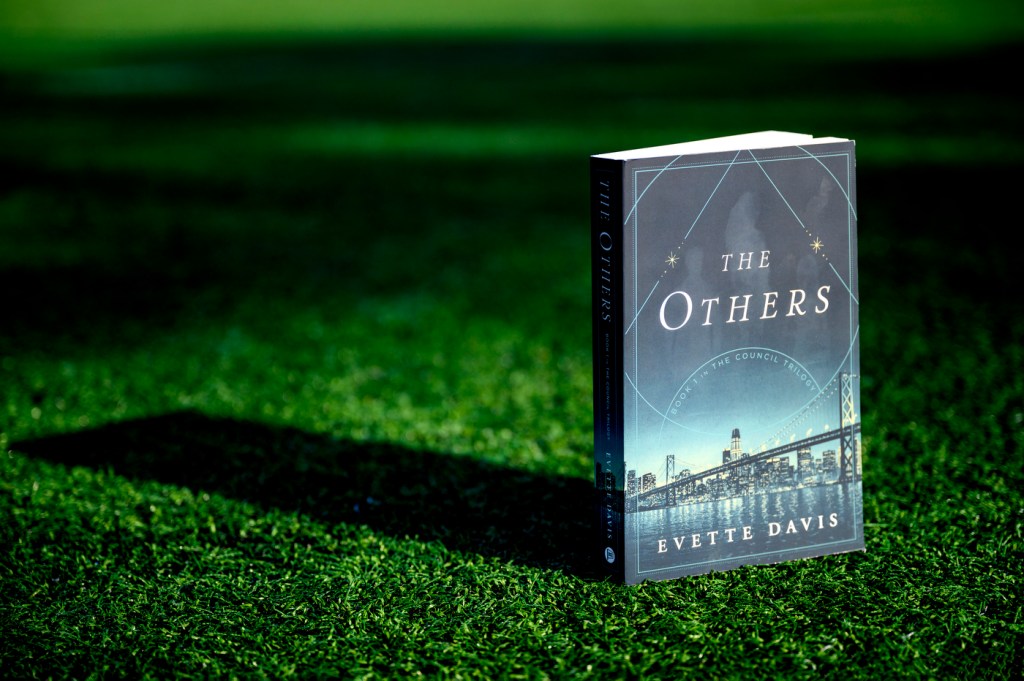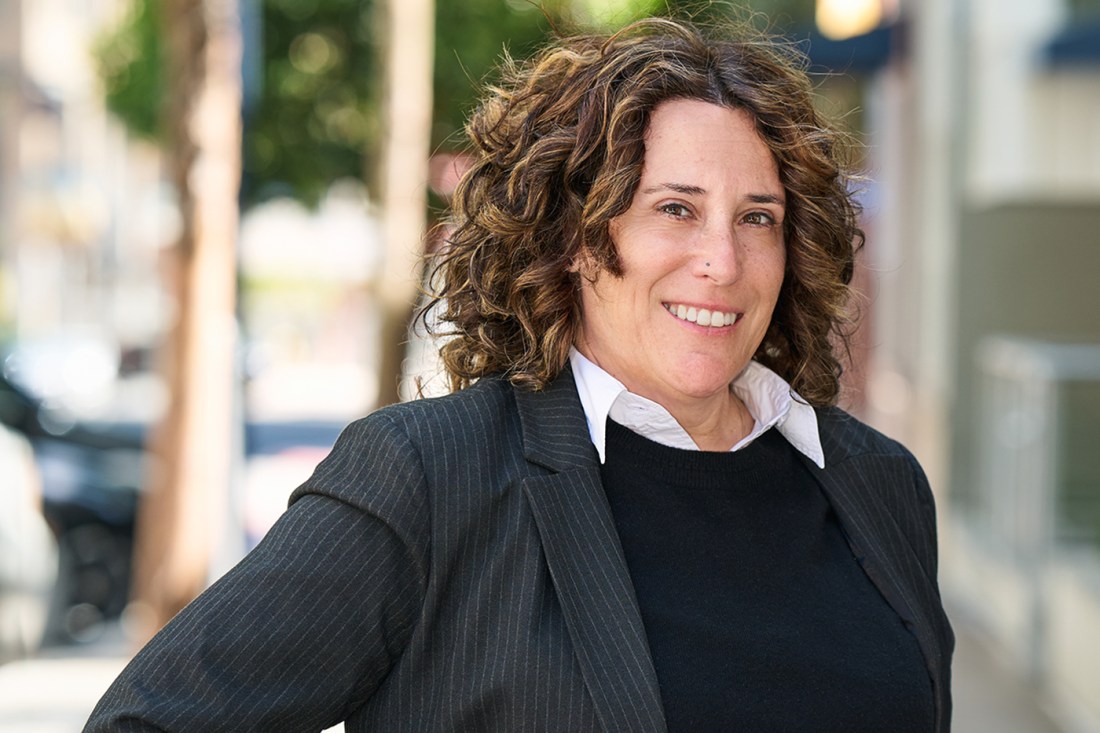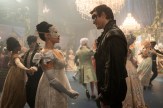Witches, fairies, vampires … Congress? Magic and politics mix in this graduate’s new fantasy thriller
In Evette Davis’ “The Others,” a group of supernatural beings operates in the electoral shadows, working to combat fascism from San Francisco’s underbelly. The first in a trilogy, the novel came out in September.

Evette Davis is a seasoned, award-winning fantasy novelist with her fifth book coming out this week. But the first fiction she ever wrote was a play.
“It’s about a political consultant. She starts seeing this ancient female warrior offstage who’s trying to teach her to be a badass, to use a sword,” says Davis, a 1990 graduate of Mills College, which has since merged with Northeastern University.
Onstage, when the protagonist faces modern-day indignities like sexism in the office, “out of the corner of her eye is this [warrior] who’s like, ‘Take his head off. Why aren’t you defending yourself?’”
The play didn’t work. “Horrible,” Davis laughs. But it was the seed of her subsequent fiction, which places women in the process of discovering their power — magical and otherwise — at the intersection of modern politics and a barely hidden supernatural world.
“I like writing characters who people underestimate,” Davis says. “They have a wide lane to succeed, because nobody’s going to look for them there.”
There are plenty of such characters in her new book, “The Others,” out today. Set in San Francisco, the novel follows Olivia Shepherd, a successful political consultant leading a client’s congressional campaign. At the same time, she’s coming to terms with the fresh realization that she is a witch, with the ability to sense what people around her are thinking and feeling.
Around Olivia, an array of extraordinary beings fly just under the radar: a fairy working as a librarian; vampires lurking in the peripheries of major world events, serving as (un)living historians. Working together under the cover of San Francisco’s fog, they bring their powers to bear on elections to slow the spread of fascism across the world.

“The Others” is the first book in Davis’ “The Council” trilogy, named for the secret society of vampires, witches, demons and fairies who populate the story. Advance praise for the novel, which won the fantasy category in the 2024 International Book Awards, has been generous: David Callaway, the former editor of USA Today, called it a “rollicking supernatural jaunt … that leaps out of the famous San Francisco fog right onto our latest news pages.”
Political fiction — however fantastical — is comfortable territory for Davis, who graduated from Mills with a communications degree and has run her own public affairs consulting firm for 25 years. She turned to writing as a way to channel the frustrations and large-scale anxieties that can accompany that line of work.
“I wanted a creative place to put my energy in what is a super-stressful profession,” she says. An omnivorous reader, Davis loves how the exaggerated trappings of genres like science fiction and fantasy can underscore — and often, foresee — truths about the real world.
“Think about ‘Fahrenheit 451,’ the prediction of screens being everywhere,” she says. “Think about George Orwell. Science fiction often predicts a future that’s uncomfortable, or it discusses social commentary that you wouldn’t necessarily be able to in a straight novel because you have this license to be like, well, imagine if we burned all our books.”
Her previous novel, “48 States,” imagines a dystopic future America where state lines have been redrawn, the draft is in effect, and a megalomaniac former CEO plots a conspiracy to overthrow the government and pitch the country into civil war.
Featured Posts
For “The Others” and the rest of the Council trilogy, Davis says she tries to bend certain rules of the paranormal and fantasy genres while hewing closely enough to their conventions to be recognizable.
“You have to keep the characters in the genre enough for readers to appreciate them,” she says. “But I don’t think anybody in this book is a traditional character you’ve met before.”
“My vampires drink Jack Daniels,” Davis lists as an example (typically vampires can’t eat or drink normal food). “They walk around in daylight,” she says, even if it’s the hazy sort of daylight characteristic of San Francisco.
Their demeanor, too, deviates from narrative convention. “The vampires turn out to be the most sensible people in the book on some level, and I feel like that’s going to amuse people,” Davis says. “Vampires are almost always party animals who do all these crazy things, and I put them in the role of being babysitters and minders — the more pragmatic, practical people.”
San Francisco itself is perhaps the most instrumental character in “The Others.” The city’s trademark fog allows the figures populating its magical underbelly to operate without attracting notice; important scenes take place in and around key landmarks like the Golden Gate Bridge and the de Young Museum.
“It’s just a beautiful, mysterious place,” Davis, a Los Angeles native, says of her adopted city. After moving north to Oakland in the mid-1980s, she never left. “If you don’t get inspired while you’re here, you’re missing something.”
The next two “Council Trilogy” installments venture out of the Bay Area: “The Gift,” slated for a March 2025 release, takes place mostly in Serbia and Slovenia. For the yet-to-be-titled third and final book, coming in fall 2025, Davis’ off-kilter cast of magical characters will return to the United States and travel the country, monitoring elections.
At the center of it all is Olivia, a deeply flawed protagonist navigating her career, personal life and the responsibility of her newfound powers — someone Davis thinks most women can identify with, magical abilities aside.
“What I relate to in her is this question of power dynamics — how you be a leader without knocking people’s blocks off as a woman,” Davis says. “I’ve gone through the gamut as a professional, of being criticized for talking too much and for saying nothing. Olivia takes a familiar journey: she’s knocked down, and she comes back up and finds herself.”
But Olivia Shepherd is still a character in a fantasy novel. As such, Davis promises, “she will take a man’s head off with a sword.”











